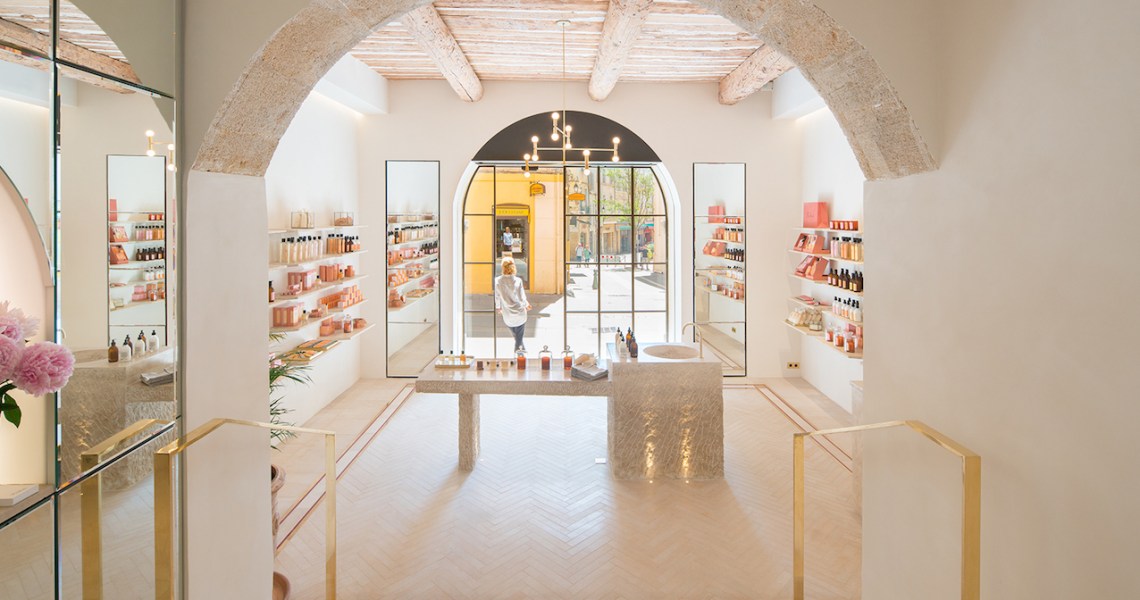Since Covid-19 has moved stateside, stores across the country — from Sephora to Nordstrom — have announced closures, while cities like New York City and Los Angeles have set limits on commercial businesses that can operate and the number of people who can gather in one place. This occurs as a time when spring weather is starting to emerge nationwide and when brands typically begin opening pop-ups.
Pop-ups have evolved beyond an experiential retail concept, and now help inform permanent store plans and product launch development. They’re also used as a marketing lever. As such, the forced closure or postponement of these strategic outlets is having a large-scale impact for beauty brands.
“There are a lot of projects we’ve worked on where the pop-up is a portion of a global plan,” said Melissa Gonzalez, CEO and chief pop-up architect at the Lionesque Group. “A lot of [brands] were making decisions to open pop-ups in isolation, but now they have to think holistically.”
Gonzalez said that discussions with clients have focused on “hitting pause” on pop-ups, meaning that they are planning to open or re-open them this summer. One unnamed beauty brand working with Lionesque Group was expected to open a pop-up in March before postponing in February. Prior to government mandates around occupancy, brands were already discussing whether it was appropriate to have a pop-up in light of the growing severity around coronavirus, she said.
Some pop-ups, such as Beauty Pie in London, have remained opened as of Tuesday, March 17, though the company declined to comment on its future plans. Dr. Barbara Sturm’s three-month services pop-up at The AllBright Spa in Los Angeles closed on Sunday. Allbright is expected to reopen by March 31, but the beauty brand declined to comment on whether its pop-up would in tandem. Gucci Beauty’s Los Angeles pop-up remained open during the weekend of March 6 and 7, as coronavirus concerns began trickling to the U.S.
Other brands have taken a more precautionary approach. Drunk Elephant said it had postponed its pop-up slated to open on March 31 in Los Angeles until an undetermined date. This delay has not further affected its hair care launch, which is set for April 3, said a representative for the brand. Additionally, Glossier’s four pop-ups are closed for two weeks and its Arizona pop-up, which was to open Wednesday, is postponed until further notice. The Fragrance Foundation’s New York City pop-up, slated for March 19 through March 22, has been canceled.
“It will be chaos in a couple of months, [when] people start to go out. Every [brand] will want to do pop-ups at the same time,” said Ana Pelucarte, co-founder of consultancy Pop Up Mob. “Pop-ups are successful because, even though everyone has a DTC website, people love novelty and like [to buy] things that no one else has.”
Ad position: web_incontent_pos1
Among its clients, Pop-Up Mob saw 14 beauty and fashion pop-ups postponed and a pop-up by Guess, set for the end of March, canceled. In cases where the pop-up has been canceled, the outcome can be “detrimental,” said Pelucarte. Beauty pop-ups, in particular, can cost up to $200,000, according to previous Glossy reporting. And it is not merely a matter of finding another date to open, but it’s also sourcing staff, vendors, builders and possibly new locations. Gonzalez said that its production vendors have said they cannot refund the 50% deposit brands have paid them, as materials have already been ordered. But discussions are taking place to use that 50% as a credit for later fees.
Pelucarte said that, in addition to postponing openings, her team is planning for the worst-case scenario of shutdowns and quarantines lasting several months.
“[Prolonged postponements] give us a lot of opportunities to innovate and think outside the box,” Pelucarte said, calling out the possibility of hosting augmented reality pop-ups using a QR code or Snapchat filter. Pop-Up Mob works three to six months ahead of any opening.
But provided that the retail environment returns to normalcy by the summer, there likely will not be a need for AR pop-ups. James Cook, director of Americas retail research at commercial real estate company JLL, said he is optimistic that whenever Covid-19 recedes, the pop-up landscape will rebound, and the increase in openings will not cannibalize the landscape.
“There will be a possible slight uptick of pop-ups over typical volumes due to pent-up demand and more retailers with tighter balance sheets, but we won’t reach saturation,” he said.




